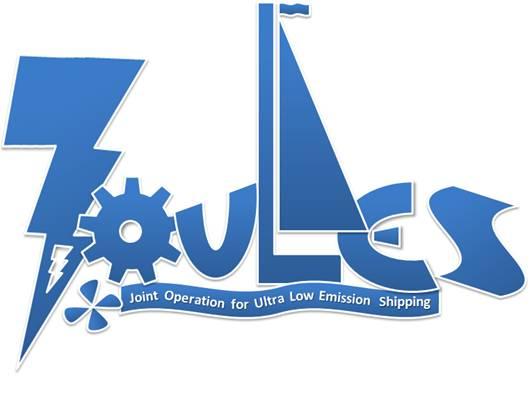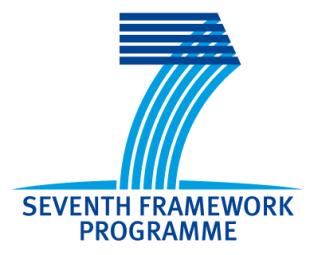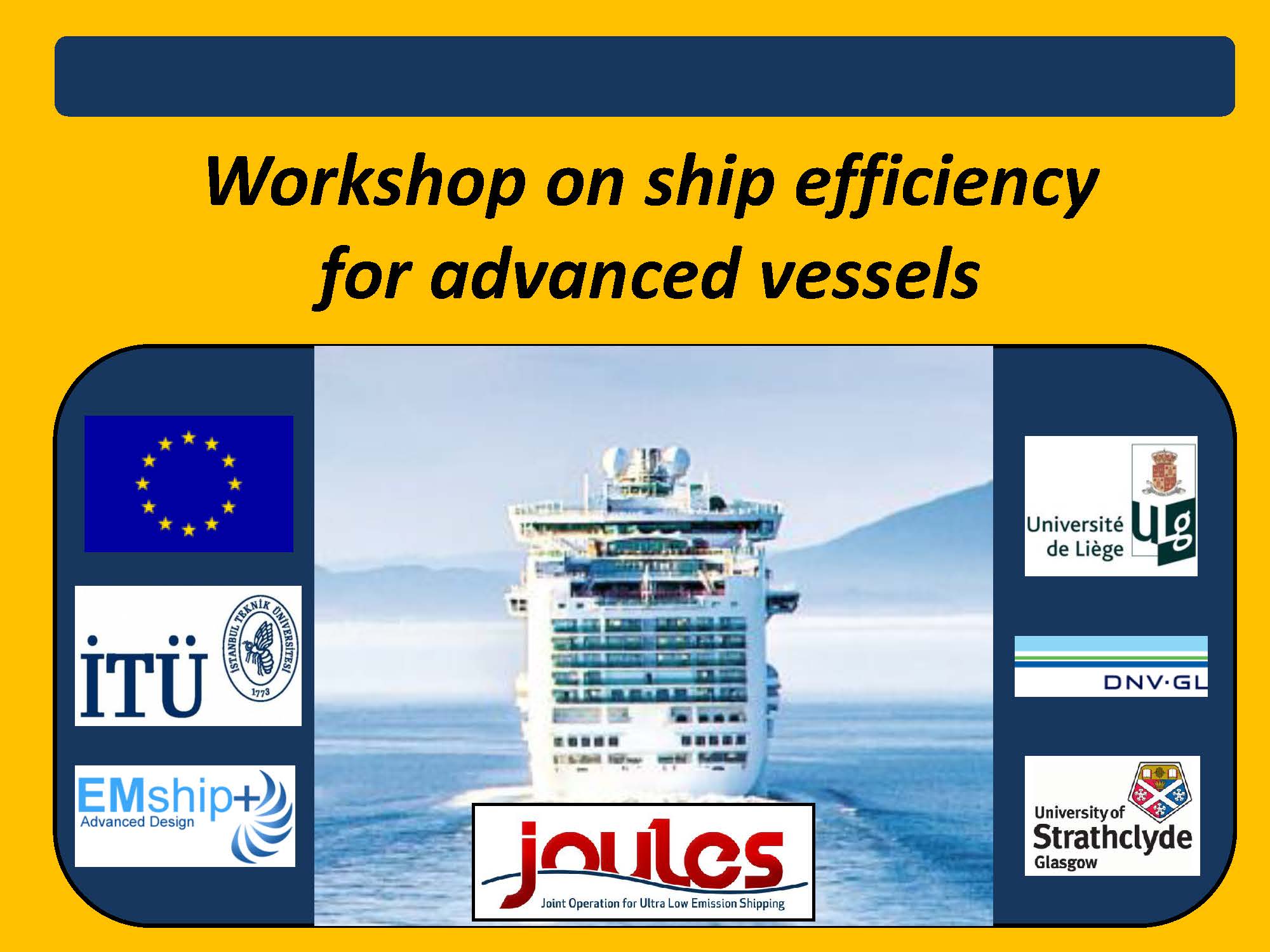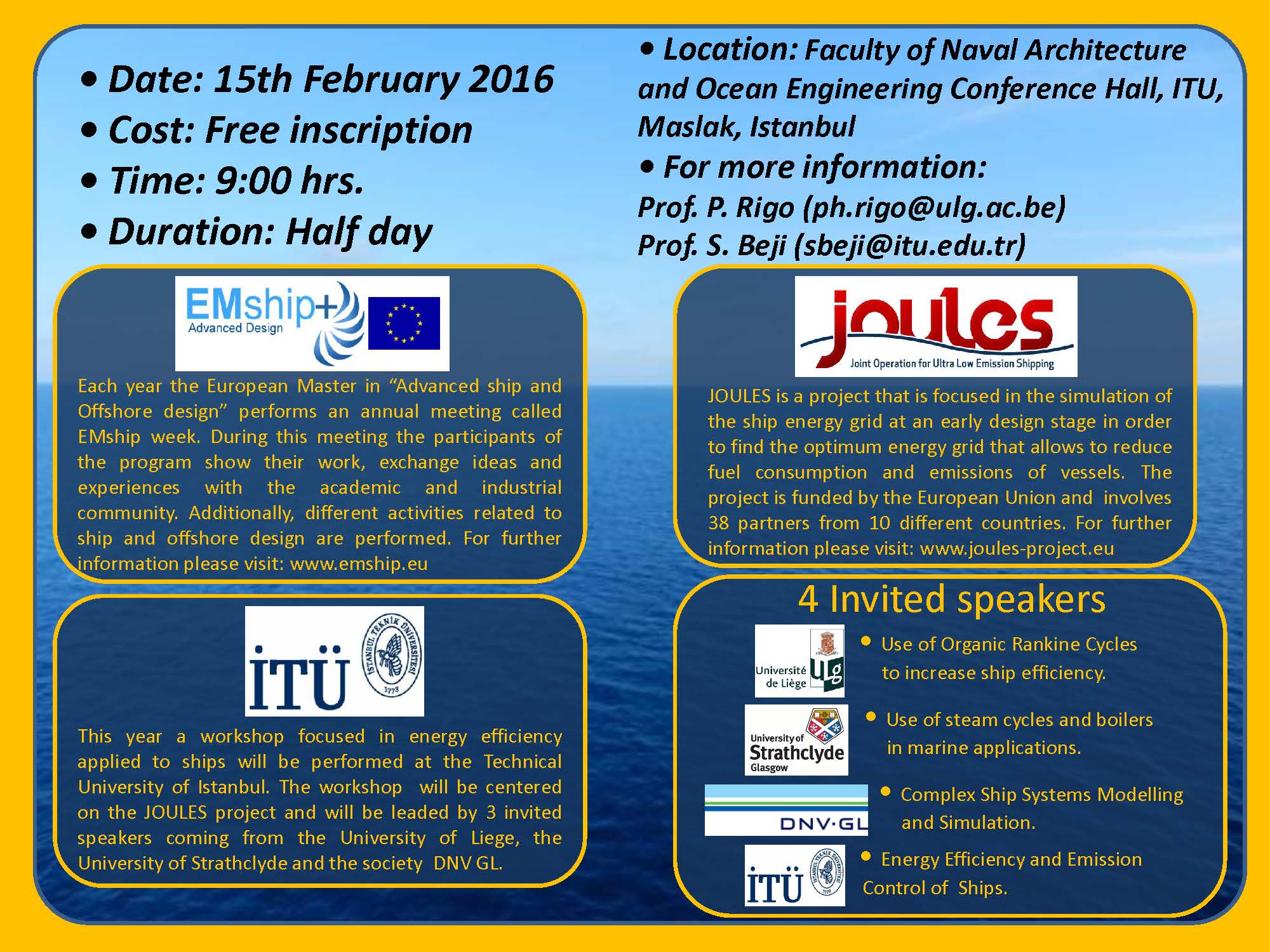Joint Operation for Ultra Low Emission Shipping – JOULES

 A consortium consisting of 39 partners from the industrial and scientific community has come together in a project named JOULES Joint Operation for Ultra Low Emission Shipping, which aims to significantly reduce emissions from ships. The project is funded by the European Union under the 7th Framework Programme (Grant Agreement No. 605190) and is coordinated by Flensburger Schiffbau-Gesellschaft. The project started on June 1st 2013 and will have a duration of four years.
A consortium consisting of 39 partners from the industrial and scientific community has come together in a project named JOULES Joint Operation for Ultra Low Emission Shipping, which aims to significantly reduce emissions from ships. The project is funded by the European Union under the 7th Framework Programme (Grant Agreement No. 605190) and is coordinated by Flensburger Schiffbau-Gesellschaft. The project started on June 1st 2013 and will have a duration of four years.
The JOULES project will focus on the integration of energy saving technologies in the early design stage, using advanced simulation models to be developed for the energy grid of the ship. The optimum combination of energy consumers incl. energy recovery systems is expected to significantly improve the vessel´s overall energy efficiency. Technology providers, modeling experts and yard partners will work closely together to produce, in total, eleven application cases in five application areas (Ferry, Cruise Ships, Work Boats, Offshore Vessels and Cargo Vessels). The aim is to achieve not only an emission reduction for CO2 as stipulated in a short term 2025 scenario (appr. 23% in average for all application cases) and future 2050 scenario (appr. 50% in average for all application cases) but also to reduce other air emissions like SOx, NOx and PM as far as practicable at the same time.
The results of the simulation of the ship concepts as developed in the application cases will be used for an assessment of the main KPIs like Net Present Value, Global Warming Potential, Acidification Potential and Eutrophication Potential for the life cycle performance, using the LCPA (Life Cycle Performance Assessment) tool as developed in the previous EU BESST project. This tool allows for the comparison of different technical solutions taking into account various financial input parameters like fuel costs, investment costs, discount rate etc. Within the JOULES project, the LCPA tool needs to be enhanced, so that the results from the simulation of the energy grid can be used. Furthermore, the “well to propeller” concept will be applied in the LCP assessment especially when using alternative fuels. A suitable way of representing the external costs of air emissions will be integrated in order to fully compare new technical solutions with existing state of the art technologies.
Finally, using the results from the LCP assessment of the eleven different application cases, the most promising technologies will be further studied in up to four demonstrator cases.
The project has brought together a strong group of organizations from academia and industry that were attracted by the high potential for im proved energy efficiency through the anticipated results of the JOULES Project. The consortium consists of partners from 10 European countries.
Through the advisory group to be established, the consortium would value contact from interested parties from outside the consortium. In this way, ideas, experiences and expectations from outside the consortium can be applied in JOULES and, thus, help the project participants to guide the project in the direction of the needs of industry and research. Interested parties are invited to contact the project coordinator, This email address is being protected from spambots. You need JavaScript enabled to view it. or visit the project website: http://www.joules-project.eu.

